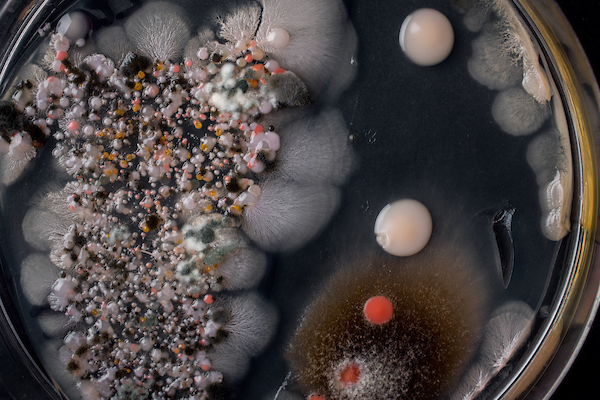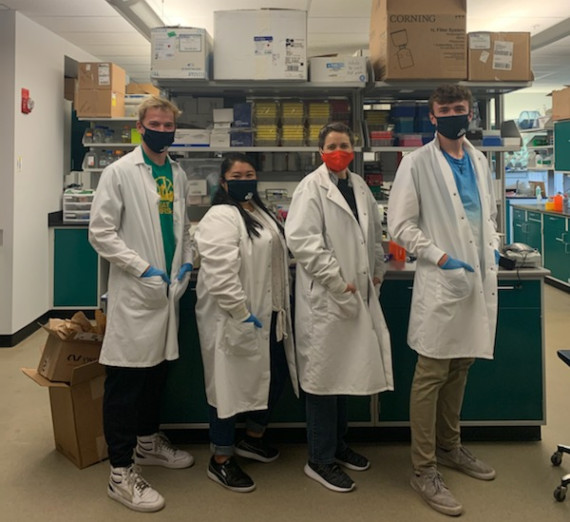Murdock College Science Research Conference Brings Win to Gonzaga Students

We love how our students and faculty innovate, particularly during the COVID era - not only in collegiate events like the Murdock College Science Research Conference but in their teaching and learning processes.
For Laura Diaz-Martinez, Ph.D., who is an assistant professor in biology at Gonzaga, the Murdock College Science Research Conference rendered some pleasant results for her students. Diaz-Martinez’s biology students Leilani Pendilla (Biology, Chemistry minor '21) and Braden Bell (Biology, Chemistry minor, '23) won the Best Poster award in the Cell/Molecular Biology category. They did so with the unique challenges of presenting with masks during a partly virtual conference and under the constraints of social distancing. Through these constraints Leilani and Braden were able to convey the depth of their research regarding the function of three essential genes, C1orf109, SPATA5, and SPATAL15 in DNA repair.
The annual conference usually involves Gonzaga chartering a bus with students and faculty in Biology, Chemistry & Biochemistry, and Physics to a venue that changes each year - with this year's conference hub landing at Reed College in Portland, Oregon. This year they shifted to a virtual platform with a stipend from the Murdock Foundation. Even though nothing was like usual, students were able to present their research through short videos and PowerPoints and were able to answer questions from other participants and faculty judges in real-time.
The student-faculty team in their lab. Pictured left to right: Steve Sanders, Lani Pendilla, assistant professor of Biology Laura Diaz-Martinez, and Braden Bell.
Poster winners Leilani Pendilla and Braden Bell are also helping Diaz-Martinez prepare and plan a new Spring class, BIOL351/BIOL351L - Advanced Cell Biology. This redesigned workshop-style course features a laboratory component, and it will provide students an opportunity to conduct cell biology research and receive their lecture and lab in the same setting, something uncommon in lab-based courses. With funding from Cell Biology Education Consortium (CBEC), their course materials will be made available to the greater Cell Biology Education community. The work doesn’t stop there; Pendilla, Bell, and fellow student Steve Sanders (Biology, '21) are producing video tutorials and protocols that will be shared publicly for instructors at other universities to use.
Murdock College Science Research Conference poster winners, Braden Bell and Lani Pendilla.
And while COVID upturned several of Diaz-Martinez’s classroom and research lab operations, she was able to find a silver lining: “We adjusted by focusing on doing computer-based aspects of our research, such as mining publicly available databases. This allowed us to take a deeper look at the genes we are studying and identify potential new avenues for our projects. It also allowed my students to become more comfortable using scientific databases and finding scientific information online.”


.ashx?rev=3bad672af85446f8a199a17f7cef0deb&hash=4D6287A21F51ABCA6740BAE69CFDD539)